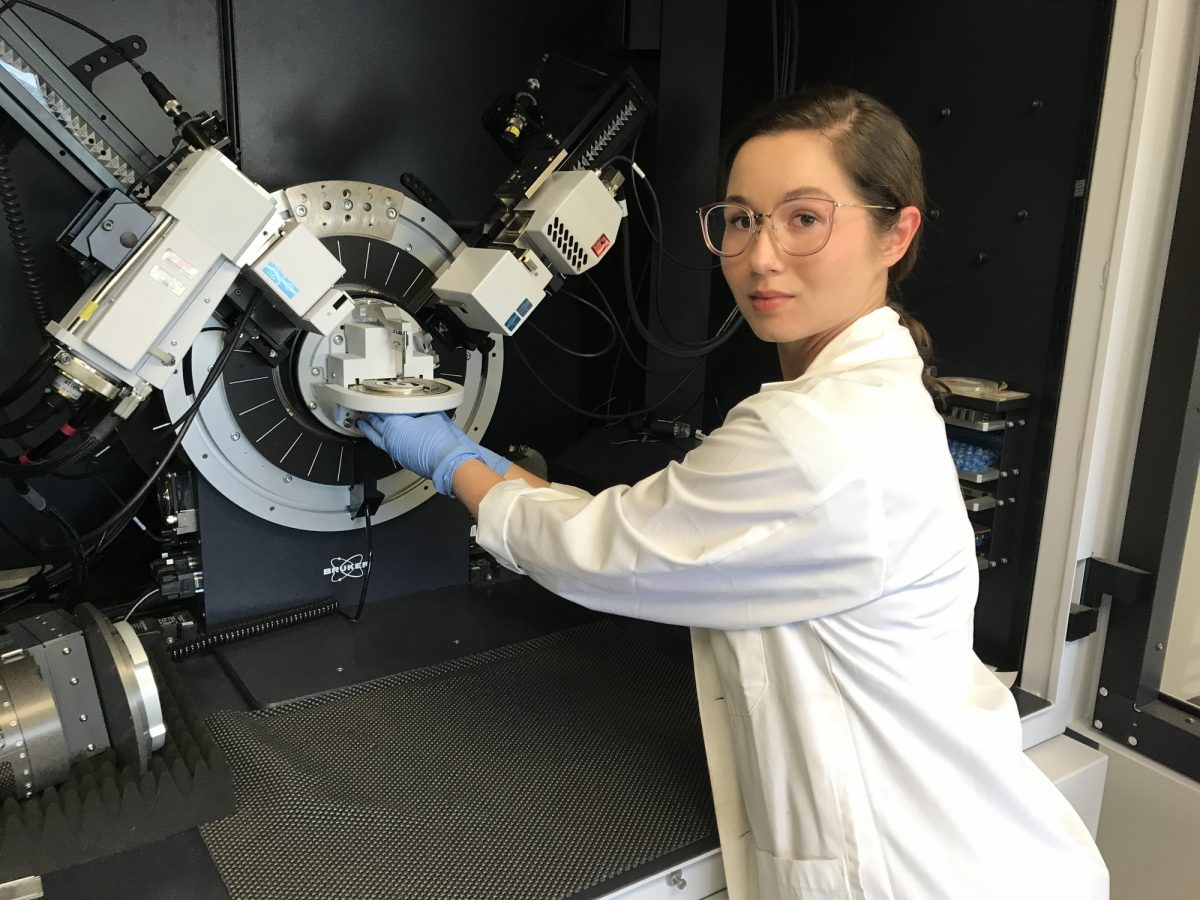
2020 Vanier Scholar, Rachel Nickel
Meet Rachel Nickel, one of five of UM’s 2020 Vanier Canada Graduate Scholarship recipients.
These awards, considered the Canadian equivalent of the United Kingdom’s Rhodes Scholarships, help recruit and keep in Canada top doctoral students from across the country and around the world. Each recipient will receive $150,000 over three years toward their research.
Rachel Nickel will be conducting his research in the Faculty of Science’s Department of Physics and Astronomy, under the supervision of Dr. Johan van Lierop. Her award is funded by the Natural Sciences and Engineering Research Council of Canada. UM Today caught up with Nickel to chat about how the Vanier Scholarship will support her research titled: Understanding and using the new physics of shape-selective magnetic nanoparticles: New ammunition for attacking biofilms.
Tell us about your thesis and research topic.
My thesis is focused on understanding the role of magnetic nanoparticle shape in biomedical applications. The particles I study are ~50 nm—over 1,000 times smaller than a human hair. Because of their small size and magnetic properties, these nanoparticles have been investigated for their use in drug delivery, cancer treatment and magnetic resonance imaging. I’m interested in how they can be manipulated to destroy biofilms. Biofilms are slimy protective membranes produced by microbes and represent a significant source of infection when they occur on reusable medical devices. These biofilms are incredibly difficult to remove and traditional sanitation methods are ineffective.
My goal is to optimize a system of nanoparticles that attacks bacterial biofilms in three ways. First, an applied magnetic field will be used to drag the nanoparticles through the membrane, causing physical damage. Second, a drug loaded onto the surface of the nanoparticles will induce chemical damage. Third, the application of a high frequency magnetic field will cause the particles to heat. A small increase in temperature causes bacterial dispersal, while a large increase in temperature kills the bacteria. To optimize this system, I will focus on determining the best nanoparticle shape to achieve enhanced drug loading and heating ability.
What got you interested in your topic in the first place?
I was first drawn to this project because of its multidisciplinary, hands-on nature. Between nanoparticle synthesis, characterization and application testing, I’m able to explore chemistry, physics and microbiology. My research provides insights into the fundamental physics of magnetic nanoparticles, yet is still connected to tangible real-world applications.
What impact do you hope your research has?
I hope that my research will provide a foundation for clinical treatments using nanoparticles. I think that these systems have enormous potential and would love to see them implemented.
How has writing the thesis been going (if you’re at that stage of your research)?
I actually haven’t started writing my PhD thesis yet, but writing papers has been going well.
How long have you been at UM?
I started as an undergraduate, so I’ve been at UM for eight years.
What does it mean to you to receive a Vanier scholarship?
I feel incredibly fortunate to have received a Vanier scholarship. This award is special because it takes into account more than just academics. I’m thrilled to be a part of such an accomplished and diverse group of scholars across Canada.
What do you do with your time outside of your PhD work?
Outside of my PhD work, I volunteer as a figure skating official through Skate Canada. This year was actually my 10th year of judging! Otherwise, I enjoy cooking and baking: the lockdown has been great for my sourdough J
Where do you see yourself in five to 10 years from now?
I would love to be in a position where I can continue to develop magnetic nanoparticles for various applications. I enjoy the creativity and problem solving aspects of research, so I hope to continue to utilize those skills in the future.
Research at the University of Manitoba is partially supported by funding from the Government of Canada Research Support Fund.






